GREENSBORO, N.C. — No matter how utterly polarizing this global pandemic has become, everyone reading these words right now can agree on this: the COVID-19 pandemic has been one long, difficult road.
For a growing group of COVID-19 survivors, that long journey is literal – a grueling physical and emotional experience stretching far longer than the typical two-week period of infection.
“It’s just hard,” said Deborah Williams, tearfully.
These last 20 months, Williams has walked the ‘long road.’ Her steps are slower these days, anchored by an aching body, mind and spirit.
“I just want people to know this COVID does not discriminate to no respective persons. It don’t care if you’re rich, poor or whatever you are - it can kill you,” she cried.

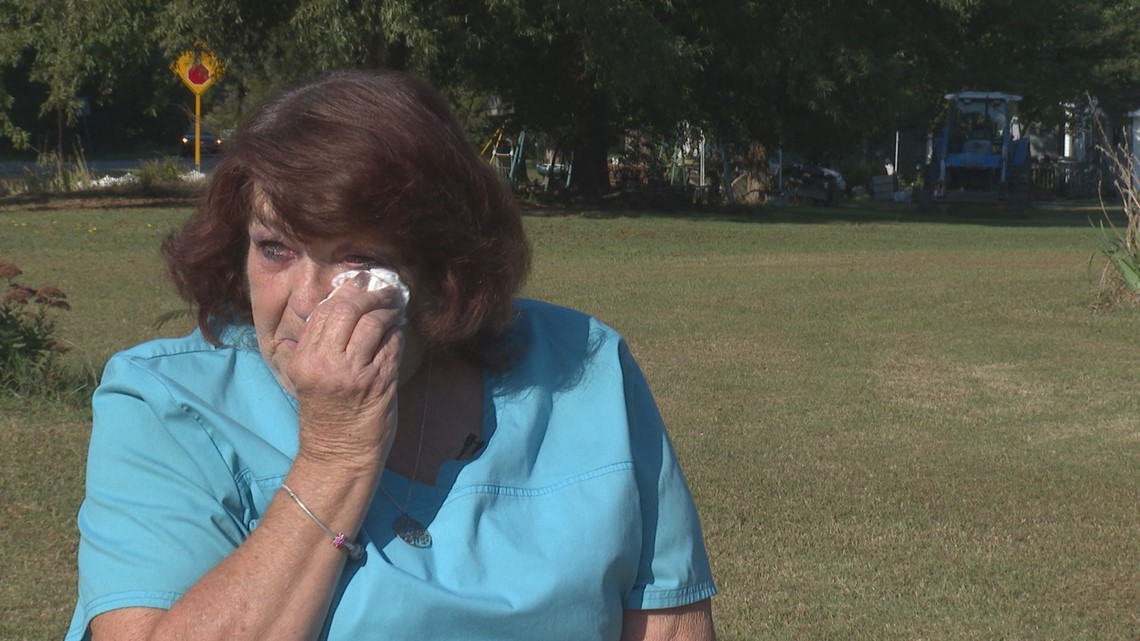
Her beloved husband of 20 years, Bishop James Williams, was a nationally-acclaimed musician. Their special song, “Color Him Father” by the Winstons, wrote the soundtrack to their relationship, until one day – without warning – the song stopped.
“I got a phone call at 8:45 in the morning, saying, ‘Mr. Williams woke up coughing real bad this morning, so we sent him to the hospital.’ Forty-five minutes later, the doctor called me and told me he’s dead,” she recalled.
His widow was in the gutters of grief, when in April, just shy of getting her COVID vaccine, she contracted the virus.

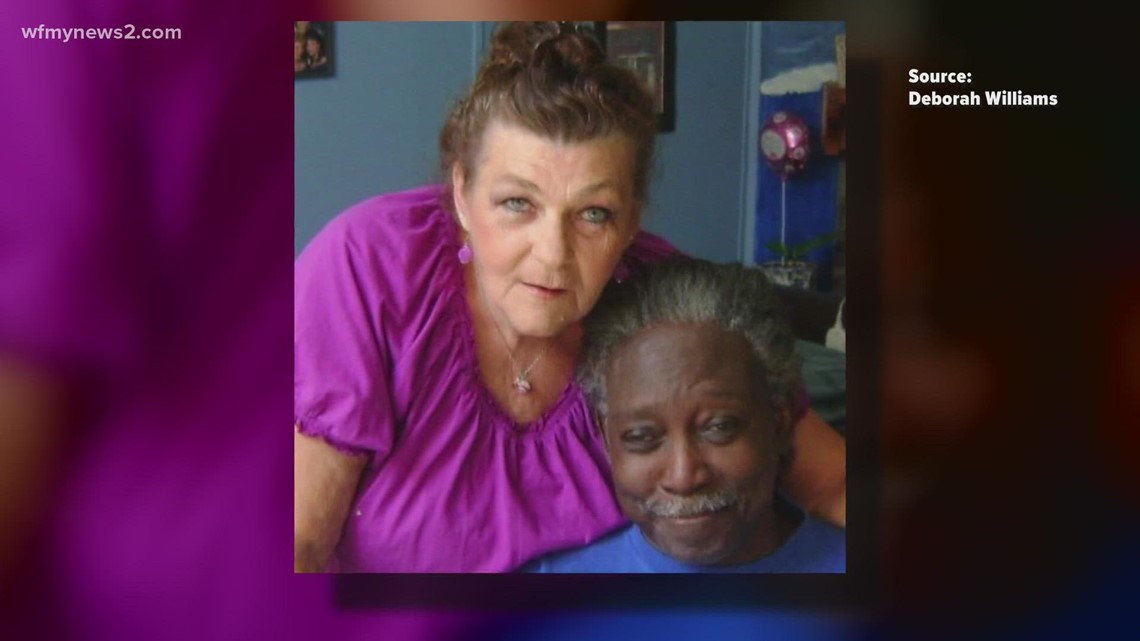
“Like, I never wanted to die. You want to die, you hurt so bad,” Deborah said.
A year and a half later, she still wears her wounds.
“I lost my hair, just handfuls of my hair, and I haven’t been able to walk right… My leg has been swollen, and they don’t know why. There’s no reason for it to be other than COVID,” she concluded.
DEFINING LONG-HAUL COVID
Williams isn’t alone in her experience. Research published in the Lancet shows nearly two-thirds of people hospitalized with COVID-19 have at least one lingering symptom six months after discharge. The experience is so common, it now has a name – Long-Haul COVID (sometimes called just Long COVID).
“Normally, you should get over COVID after two, three weeks of testing positive, but we see patients way longer than that. After eight weeks, (if) you’re still having symptoms, you’re classified as ‘long haul,’” explained Olu Jegede, MD.
Jegede is the Cone Health Community Care director. He has noticed Long-Haul COVID affects patients of all ages but far more women than men (78% to 22% at Cone Health), a disparity that might not be coincidental.
“One of the most common theories discussed in literature is the fact that women mount stronger immunity against the virus. For that reason, it looks like they have more of the immune system fighting itself,” he explained.
THE SIDE EFFECTS
The numerous side effects of Long-Haul COVID range from mild to severe. The most common are persistent cough and fever, chronic fatigue, ‘tickling’ of the heart, and a shortness of breath requiring oxygen.
“The one that is very disturbing for our patients is the brain fog. They can’t remember things. They find it difficult to find their words. It’s difficult to concentrate,” Jegede explained.
THE EXPERIENCES
Each experience – each route – on the long journey is unique. Carol Hardister contracted COVID-19 nearly a year ago.
“I can tell you, I probably have maybe 5% of my taste and 3% of my smell. I’m a huge cook, I love to grill out, I love to eat, so now, after I’ve had that (COVID), it’s really been taken away from me,” she reflected.
Barbara Curtis can empathize, as she’s on the long road, too.
“Before I had COVID, I had done a lot of things. I was active, I (had) done ballroom dancing, I went to church,” she said.
Curtis was the last patient discharged from Cone Health’s COVID-only hospital earlier this year. Despite huge strides, she still deals with chronic fatigue.

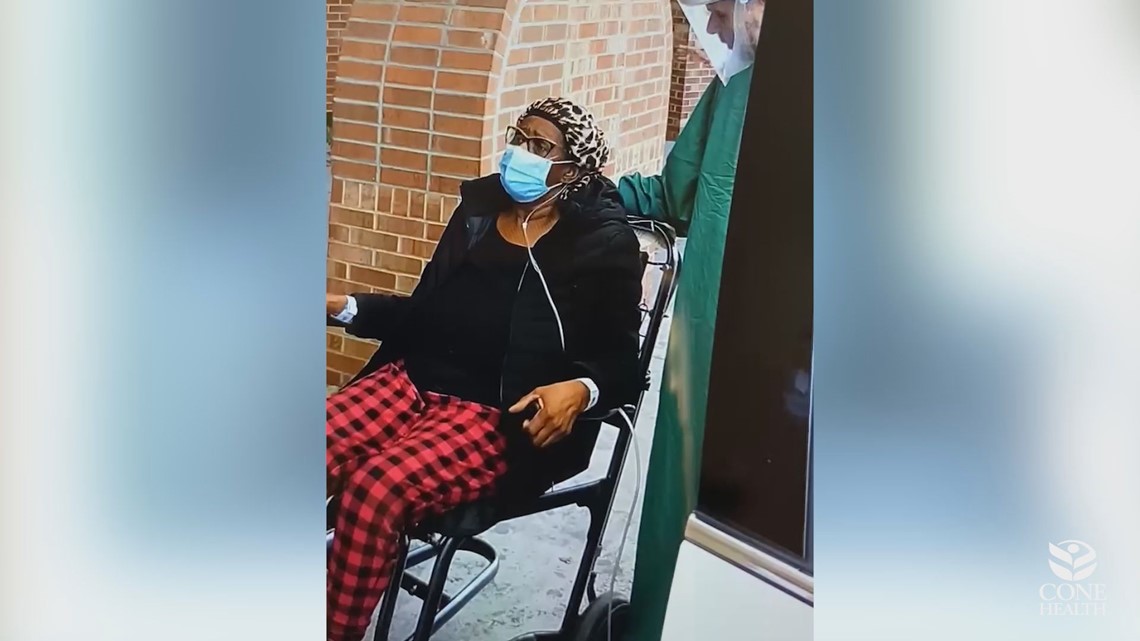
“Some days when I come home, I have no energy to do anything else. I just have to lay down and rest,” she admitted.
She rests and waits to feel better.
THE TREATMENT
“Long COVID doesn’t have treatment, per se, so it’s just managing the symptoms of the patients,” Jegede said.
That’s why Jegede and Tonya Nichols, FNP-C, run Cone Health’s Post-COVID Care Center on Pomona Dr. in Greensboro, the first of its kind in the area. Since it opened in March, more than 500 ‘long haulers’ have sought help there.

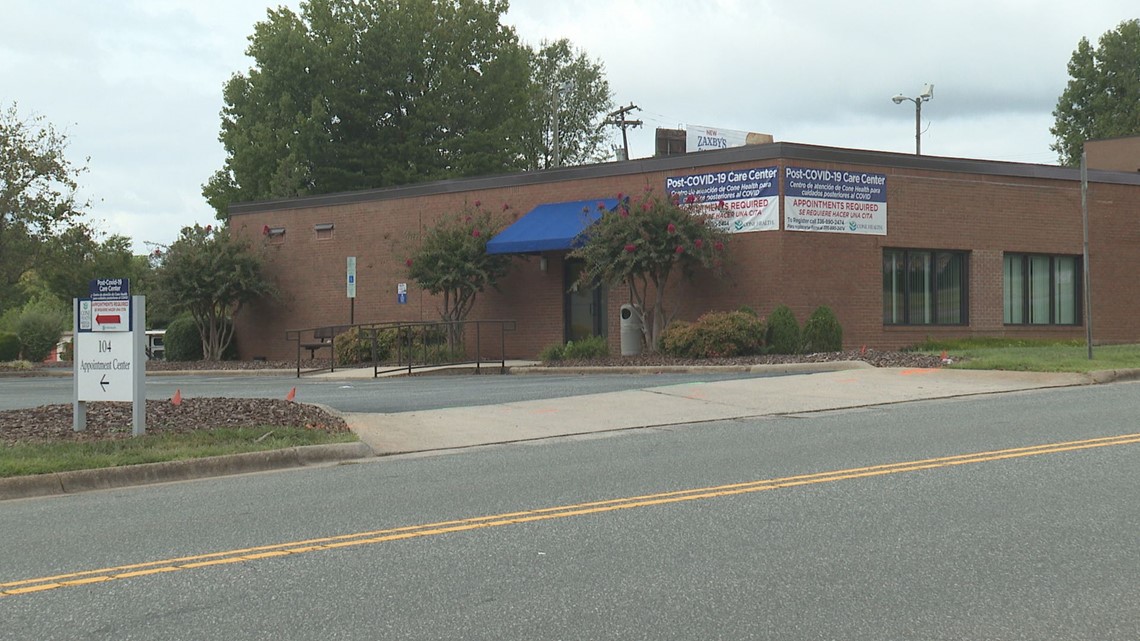
“I can’t see close up, and it’s gotten a lot worse. My hair, most of it fell out, so I had to get my hair cut. When I went to the beautician, they thought I had cancer, but I said no, it was from COVID,” said patient Anita Johnson.
Patients like Johnson get evaluated and monitored at the clinic and then referred out to specialized care, from physical therapy to pulmonary support to, perhaps most importantly, mental health counseling.
“They’re just grateful, a lot of times, just to have someone to talk to about it – someone to validate their feelings and just know they can get help,” Johnson said.
Johnson explained, “I have severe anxiety. Before I had anxiety, but being in the hospital, with the machines going off and being by yourself, you feel kind of hopeless in there. It’s a little bit of PTSD from that.”

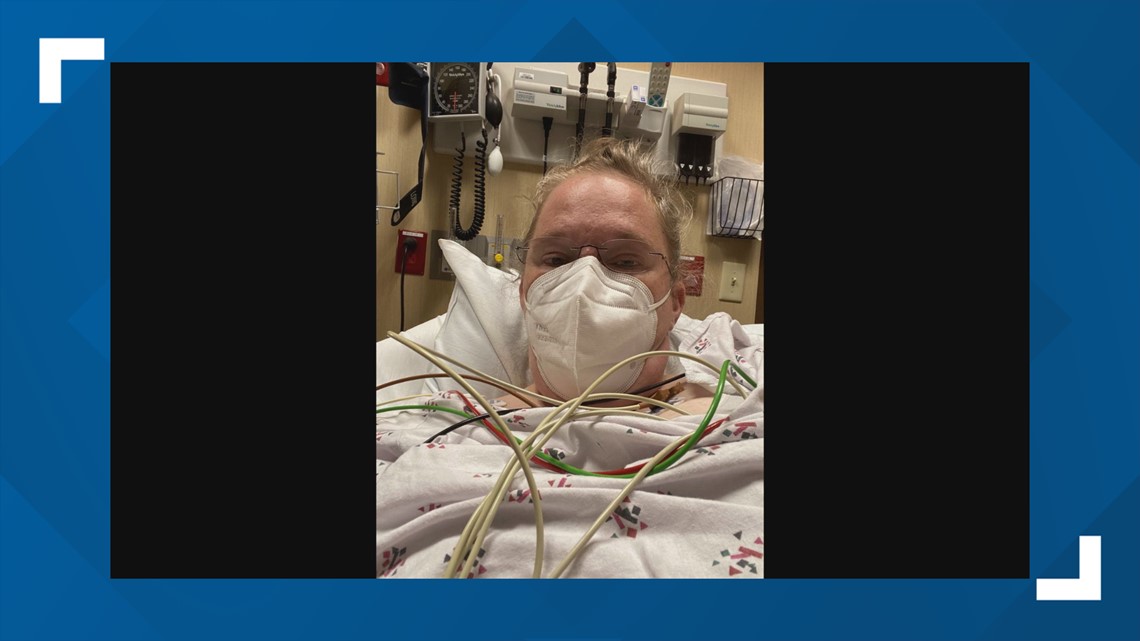
Fortunately, the clinic’s providers attest to the healing powers of reaching out for help.
Nichols said, “I have several (patients) who’ve graduated now. They don’t need us anymore.”
THE HOPE
They do need purpose – not as sufferers, but survivors.
“Heaven has really blessed me, and I’m so thankful. Some days, it gets hard, it (can) be very hard, but I ask God to give me strength, and he does that,” Curtis said.
For Williams, strength comes in taking a stand – no matter how hard and how personal her new mission, which is to advocate vaccines.
“I had to tell my grandchildren if you are all not going to get vaccinated, you have to stay away from me, and that’s hard, because I can’t see my babies,” she cried.
Yet, when she feels lonely and out of ‘sync,’ she turns to her late husband for help.
She explained, “He would always tell me that if he died before me, if there was any way in the world he could send a sign to me from heaven, he would.”
Williams said that sign came right before she sat down for her interview with WFMY News 2. Fittingly, it was in the form of their shared favorite song.
“When I was getting ready to bring my stuff out to you, I went in the house, I had the radio on, and ‘Color Him Father’ was playing. It’s like he (my husband) knows we’re doing this interview, and he’s here in spirit,” she said tearfully.
It was a reminder love is ‘in it’ for the long haul, too, and no one has to walk the long road post-COVID alone.

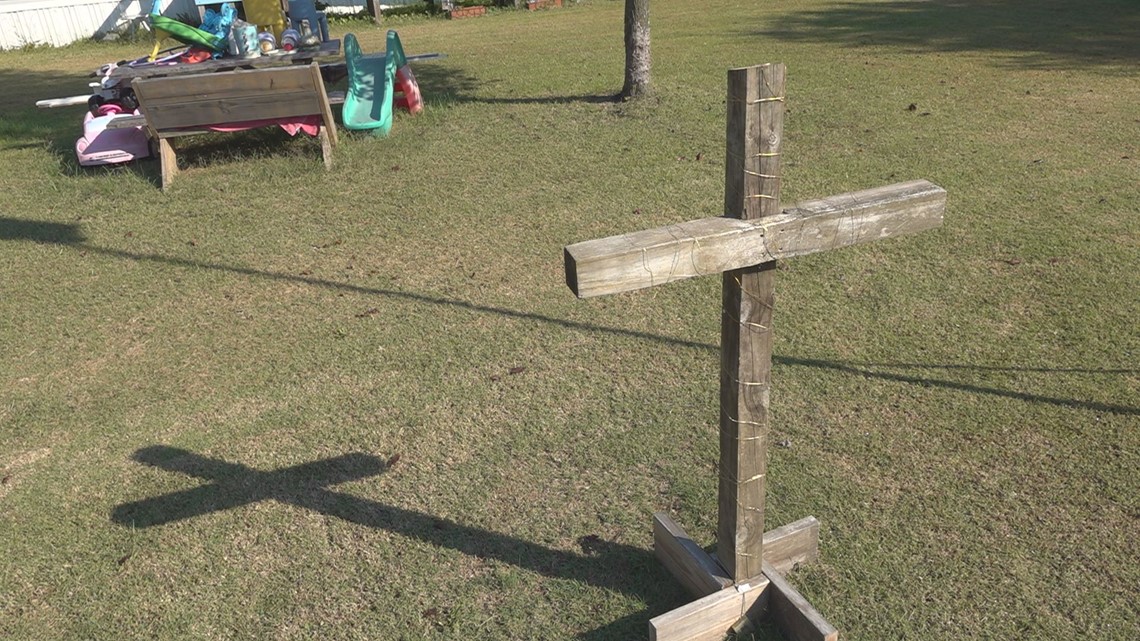
THE VACCINE
As scientists work to find a prevention or cure for Long-Haul COVID, Jegede noted some patients have found vindication in a vial -- the COVID-19 vaccine.
RELATED: 'It helped me out tremendously' | COVID-19 long hauler says vaccine got rid of lasting symptoms
"It actually makes some people better. I've seen patients that...got COVID, and they have persistent loss of smell and taste, and they got their vaccine, and everything came back," Jegede said.
Health providers, physician's offices and clinics are now offering COVID-19 vaccines to everyone ages 5 and up. They are free, regardless of insurance.
WEB EXTRA: extended story featuring deleted scenes


